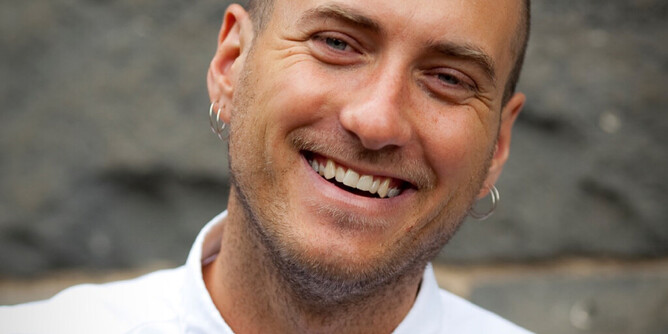Introducing one of our talented facilitators, Trent Larkman.
Trent, who is based in Sydney, is a specialist violence prevention and response training practitioner. He is a registered Social Worker and has a background in men’s family violence counselling and community engagement. Trent combines his passion for engaged pedagogy with his experience of working with men who use family violence to deliver collaborative, engaging and insightful training sessions to build on people’s confidence and skills to reflect on themselves and create change in their everyday lives. Trent is invigorated by conversations both in and out of the workplace which facilitate learning, self-reflection, critical thinking, and hope. Like theorist bell hooks, Trent believes that a bit of everyday humour is essential to creating open learning atmospheres which is vital when confronting ideas of gender, violence & abuse in the goal of ending all forms of structural and interpersonal violence.
What led you to working with Challenge DV?
I’m so grateful for any opportunity that comes to me that allows me to get in the classroom with people around the country and talk about how we can create change as it relates to ending violence. Working with Challenge DV is a fantastic opportunity for me as they’re connected with so many workplaces and communities around the country.
What do you value most about delivering the training?
I deeply value the opportunity I have when delivering training to meaningfully connect with people and share ideas and ways of understanding the world that can change and liberate us all.
What do you value most about being able to support workplaces and people through this work?
Many of us spend much of our day to day lives in workplaces with others, which provides us with so many opportunities to think critically and learn how we can do better to support and care for those around us. Workplaces are often microcosms of the world outside, and if we can learn to be mindful of power dynamics and violence within these spaces, we can translate these knowledges into the rest of our lives.
What’s one thing you wished more people knew about domestic and family violence prevention?
Preventing violence against women and family violence starts with each of us today. People of all genders, ages, races, sexualities and abilities have an important role to play in creating change in their everyday lives. It’s not always about having a big fundraising event; while they’re important, it’s also vital that we reflect on how we ‘do’ gender and relate to others in our everyday lives. It’s so vital to understand that we must take an intersectional approach to ending patriarchy, which includes challenging racism, homophobia, transphobia and ableism.
If society could do just one thing to make an impact, what would it be?
Practice relating equitably with everybody, everyday. Domination and power over others has no place in our communities, and as such, the best thing we can do is practice critical thinking and the ethics of love and care.



